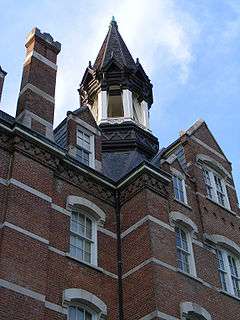Fisk University
 | |
Former names | The Fisk Freed Colored School |
|---|---|
| Motto | Her sons and daughters are ever on the altar[1] |
| Type | Private, HBCU |
| Established | 1866 |
| Affiliation | United Church of Christ (historically related) |
| Chairman | Robert W. Norton |
| President | Frank L. Sims (interim president) [2] |
| Provost | Rodney S. Hanley |
Academic staff | 70 |
| Students | 700+ |
| Location |
Nashville, Tennessee, USA 36°10′08″N 86°48′17″W / 36.1688°N 86.8047°WCoordinates: 36°10′08″N 86°48′17″W / 36.1688°N 86.8047°W |
| Campus | Urban, 40 acres (16 ha) |
| Colors |
Gold and Blue |
| Athletics |
NAIA – independent (previously GCAC) |
| Nickname | Bulldogs |
| Mascot | The Fisk Bulldog |
| Affiliations |
UNCF ORAU CIC |
| Website | www.fisk.edu |
 | |
Fisk University (or simply Fisk) is a private historically black university founded in 1866 in Nashville, Tennessee, United States. The 40-acre (160,000 m2) campus is a historic district listed on the National Register of Historic Places.
In 1930, Fisk was the first African-American institution to gain accreditation by the Southern Association of Colleges and Schools. Accreditations for specialized programs quickly followed.
History

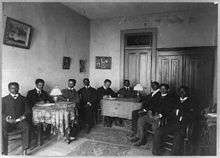
In 1866, six months after the end of the American Civil War, leaders of the northern American Missionary Association (AMA) – John Ogden, Reverend Erastus Milo Cravath, field secretary; and Reverend Edward Parmelee Smith – founded the Fisk Free Colored School, for the education of freedmen. AMA support meant the organization tried to use its sources across the country to aid education for freedmen. Enrollment jumped from 200 to 900 in the first several months of the school, indicating freedmen's strong desire for education, with ages of students ranging from seven to seventy. The school was named in honor of General Clinton B. Fisk of the Tennessee Freedmen's Bureau, who made unused barracks available to the school, as well as establishing the first free schools for white and black children in Tennessee. In addition, he endowed Fisk with a total of $30,000.[3] The American Missionary Association's work was supported by the United Church of Christ, which retains an affiliation with the university.[4] Fisk opened to classes on January 9, 1866.[5]
With Tennessee's passage of legislation to support public education, leaders saw a need for training teachers, and Fisk University was incorporated as a normal school for college training in August 1867. James Dallas Burrus, John Houston Burrus, Virginia E. Walker, and America W. Robinson were the first four students to enroll at Fisk in 1867 and upon graduation Broughton and the two Burrus' were the first African Americans to graduate from a liberal arts college south of the Mason-Dixon line. Robinson graduated as well and became a member of the Fisk Jubilee Singers. Walker became a noted missionary while the Burrus brothers were both prominent educators and, during their careers, professors at Fisk.[6] Cravath organized the College Department and the Mozart Society, the first musical organization in Tennessee. Rising enrollment added to the needs of the university. In 1870 Adam Knight Spence became principal of the Fisk Normal School. To raise money for the school's education initiatives, his wife Catherine Mackie Spence traveled throughout the United States to set up mission Sunday schools in support of Fisk students, organizing endowments through the AMA.[7] With a strong interest in religion and the arts, Adam Spence supported the start of a student choir. In 1871 the student choir went on a fund-raising tour in Europe; they were the start of the Fisk Jubilee Singers. They toured to raise funds to build the first building for the education of freedmen. They raised nearly $50,000 and funded construction of the renowned Jubilee Hall, now a designated National Historic Landmark.[8] When the American Missionary Association declined to assume the financial responsibility of the Jubilee Singers, Professor George L. White, Treasurer of the University, took the responsibility upon himself and started North in 1871 with his troupe. On April 12, 1873, the Jubilee Singers sailed for England where they sang before a fashionable audience in the presence of the Queen, who expressed her gratification at the performance.[5]
During the 1880s Fisk had an active building program, as well as expanding its curriculum offerings. By the turn of the 20th century, it added black teachers and staff to the university, and a second generation of free blacks entered classes.[8]
From 1915 to 1925, Fayette Avery McKenzie was President of Fisk. McKenzie's tenure, before and after World War I, was during a turbulent period in American history. In spite of many challenges, McKenzie developed Fisk as the premier all Black university in the United States, secured Fisk’s academic recognition as a standard college by the Carnegie Foundation, Columbia University and the University of Chicago, raised a $1 million endowment fund to ensure quality faculty and laid a foundation for Fisk’s accreditation and future success.[9]
In 1947 Fisk heralded its first African-American president with the arrival of Charles Spurgeon Johnson. Johnson was a premier sociologist, a scholar who had been the editor of Opportunity magazine, a noted periodical of the Harlem Renaissance.
In 1952, Fisk was the first predominantly black college to earn a Phi Beta Kappa charter. Organized as the Delta of Tennessee Chapter of the Phi Beta Kappa National Honor Society that December, the chapter inducted its first student members on April 4, 1953.
From 2004 to 2013, Fisk was directed by its 14th president, the Honorable Hazel O'Leary, former Secretary of Energy under President Bill Clinton. She was the second woman to serve as president of the university. On June 25, 2008, Fisk announced that it had successfully raised $4 million during the fiscal year ending June 30. It ended nine years of budget deficits and qualified for a Mellon Foundation challenge grant. However, Fisk still faced significant financial hardship, and claimed that it may need to close its doors unless its finances improve.[10]
H. James Williams, served as president from February 2013 to September 2015. Williams had previously been dean of the Seidman College of Business at Grand Valley State University in Michigan and, before that, an accounting professor at Georgetown University, Florida A&M and Texas Southern University.[11][12] Williams stepped down in September 2015.[13]
Campus
|
Fisk University Historic District | |
| Location |
Roughly bounded by 16th and 18th Aves., Hermosa, Herman and Jefferson Sts. Nashville, Tennessee |
|---|---|
| Architectural style | Italianate; Queen Anne |
| NRHP Reference # | 78002579 |
| Added to NRHP | February 9, 1978 |
Jubilee Hall, which was recently restored, is the oldest and most distinctive structure of Victorian architecture on the 40 acre (160,000 m²) Fisk campus.
 Students and teachers in training school (between 1890 and 1906)
Students and teachers in training school (between 1890 and 1906) Theological Hall, c. 1900
Theological Hall, c. 1900 Jubilee Hall
Jubilee Hall- Fisk Memorial Chapel
Music, art, and literature collections
Fisk University is the home of a music literature collection founded by the noted Harlem Renaissance figure Carl Van Vechten, for whom the campus museum is named, and a substantial collection of materials associated with Charles W. Chestnutt.[14]
Alfred Stieglitz Collection
In 1949, Georgia O'Keeffe donated to Fisk of a number of paintings that had belonged to her husband, the photographer and art patron Alfred Stieglitz. The collection consists of 101 works by important artists, including European modernists Paul Cezanne, Pierre-Auguste Renoir, Pablo Picasso and Diego Rivera, as well as American artists Marsden Hartley, Arthur Dove and Charles Demuth and works by O'Keefe.[15]
In 2005, mounting financial difficulties and deteriorating conditions in the gallery led the University trustees to vote to sell two of the paintings, O'Keeffe's "Radiator Building" and Hartley's "Painting No. 3," together estimated to be worth up to 45 million U.S. dollars. The sale was challenged by the Georgia O'Keeffe Museum, the legal guardians of her estate. As a compromise, a joint agreement was established between Fisk University and the Crystal Bridges Museum of American Art.[16][17][18][19] The two museums now share ownership of the Stieglitz collection, which rotates between them every two years. In 2016, as part of the university's sesquicentennial celebration, the collection was displayed at the newly-renovated Carl Van Vechten Gallery.[15]
Science programs
Fisk University has a strong record of academic excellence: it has graduated more African Americans who go on to earn PhDs in the natural sciences than any other institution.[20]
Fisk-Vanderbilt Bridge Program
Started in 2004,[21] the Fisk-Vanderbilt bridge program helps underrepresented groups gain access to Ph.D. programs in STEM fields. The partnership between a small, historically black college and a major research university aims to diversify doctoral study.[22] The program, which has received money from NASA, the National Science Foundation, and the Integrative Graduate Education and Research Traineeship,[23] provides a scholarship for a Master's degree at Fisk University and close mentorship for students who go on to a Ph.D.[21] Since 2004, 21 students in the program have completed a Ph.D., with another 56 currently pursuing graduate study.[21] The program has a success rate far higher than the national average for completion of Ph.D. programs, which is about 50%.[24]
Ranking
U.S. News and World Report ranks Fisk University as one of the Best National Liberal Arts Colleges: their ranking for 2016 was number 7 among historically black colleges and universities[25] and 171 overall.[26] The Princeton Review ranks Fisk University as one of America's best colleges in the southeast,[27] and Fisk appears on Parade magazine's "A List" of colleges and universities that offer combined bachelor's and master's degree programs.[28] Forbes annually places Fisk on its "America's Top Colleges" list.[29]
Athletics
Fisk University teams, nicknamed athletically as the Bulldogs, are part of the National Association of Intercollegiate Athletics (NAIA)[30] Division I level, primarily competing in the Gulf Coast Athletic Conference (GCAC).[31] Men's sports include basketball, cross country, tennis and track & field; women's sports include basketball, cross country, softball, tennis, track & field and volleyball.
Notable alumni
| Name | Class year | Notability | Reference(s) |
|---|---|---|---|
| Lil Hardin Armstrong | 1915 | jazz pianist/composer, second wife of Louis Armstrong | |
| Constance Baker Motley | 1941–1942 | first African-American woman elected to the New York State Senate | |
| Marion Barry | 1960 | former mayor of Washington, D.C. | |
| Mary Frances Berry | former Chair, United States Commission on Civil Rights; former Chancellor University of Colorado at Boulder | ||
| John Betsch | 1967 | Jazz percusionist | |
| Joyce Bolden | first African-American woman to serve on the Commission for Accreditation of the National Association of Schools of Music | ||
| Otis Boykin | 1942 | Inventor, control device for the heart pacemaker | |
| St. Elmo Brady | first African American to earn a doctorate in Chemistry | ||
| Virginia E. Walker Broughton | 1875, 1878 | Author and Baptist missionary | [32][33][34] |
| Cora Brown | first African-American woman elected to a state senate | ||
| James Dallas Burrus | 1875 | educator | |
| John Houston Burrus | 1875 | educator |  |
| Gregory "DJ GB" Byers | 2013 | DJ, Producer | |
| Henry Alvin Cameron | 1896 | Educator, decorated World War I veteran | |
| Elizabeth Hortense (Golden) Canady | past national president of Delta Sigma Theta sorority | ||
| Alfred O. Coffin | first African American to earn a doctorate in zoology | ||
| Malia Cohen | 2001 | San Francisco District 10 Supervisor 2010 – Present | |
| Johnnetta B. Cole | anthropologist, former President of Spelman College and Bennett College | ||
| Arthur Cunningham | 1951 | Musical Composer, studied at Juilliard and Columbia University | |
| William L. Dawson (politician) | 1909 | U.S. Congressman (1943–1970) | 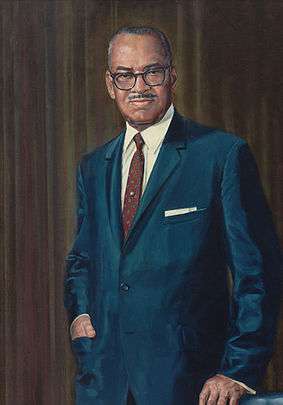 |
| Charles Diggs | United States House of Representatives Michigan (1955–1980) | 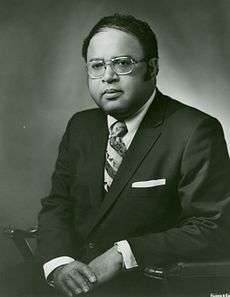 | |
| Mahala Ashley Dickerson | 1935 | first black female attorney in the state of Alabama and first black president of the National Association of Women Lawyers | |
| Rel Dowdell | 1993 | acclaimed filmmaker | |
| W. E. B. Du Bois | 1888 | sociologist, scholar, first African-American to earn a Ph.D. from Harvard | 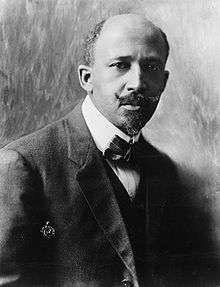 |
| Venida Evans | 1969 | Actress, best known for Ikea commercials | |
| Etta Zuber Falconer | 1953 | first African-American woman to receive a Ph.D. in mathematics; former Chair, mathematics department at Spelman College | |
| John Hope Franklin | 1935 | historian, professor, scholar, author of landmark text From Slavery to Freedom | 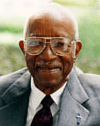 |
| Victor O. Frazer | United States House of Representatives (1995–1997) | ||
| Alonzo Fulgham | former acting chief and operating officer of the United States Agency for International Development (USAID) | ||
| Nikki Giovanni | 1967 | poet, author, professor, scholar | 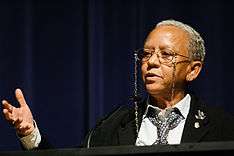 |
| Louis George Gregory | posthumously, a Hand of the Cause in Bahá'í Faith | ||
| Eliza Ann Grier | 1891 | first African-American female physician in Georgia |  |
| Kevin Hales | Professor, Africologist, Fulbright Scholar, NEH Scholar, Teaching Excellence Professor (Scholar of global African culture) | ||
| Alcee Hastings | U.S. Congressman and former U.S. district court judge | ||
| Roland Hayes | concert singer | ||
| Perry Wilbon Howard | Assistant U.S. Attorney General under President Herbert Hoover | ||
| Elmer Imes | 1903 | Renowned Physicist and Second African-American to earn a Ph.D in Physics | |
| Esther Cooper Jackson | 1940 | Founding editor of Freedomways Journal | |
| Leonard Jackson (actor) | 1952 | Actor, Five on the Black Hand Side; The Color Purple | |
| Robert James | former NFL cornerback | ||
| Judith Jamison | Pioneering Dancer and Choreographer; former artistic Director, Alvin Ailey American Dance Theater | ||
| Ted Jarrett | R&B recording artist and producer | ||
| Dr. Charles Jeter | 1971 | father of Derek Jeter | |
| Ben Jobe | 1956 | Legendary basketball coach, Southern University | |
| Lewis Wade Jones | 1931 | Sociologist; Julius Rosenwald Foundation Fellow at Columbia University | |
| Ella Mae Johnson | 1921 | at age 105 years old, Ella Mae Johnson traveled to Washington, DC to attend the inauguration of Barack Obama | |
| Matthew Knowles | 1973 | Father and former manager of Beyoncé, founder and owner of Music World Entertainment, and adjunct professor at Texas Southern University | |
| Dr. John Angelo Lester | 1895 | Professor Emeritus of Physiology, Meharry Medical College | |
| Nella Larsen | 1908 | Novelist, Harlem Renaissance era | |
| Julius Lester | 1960 | Author of children's books and former professor at the University of Massachusetts Amherst | |
| David Levering Lewis | 1956 | Two-time Pulitzer Prize Winner |  |
| John Lewis | Congressman, civil rights activist, former President of Student Nonviolent Coordinating Committee (SNCC) | 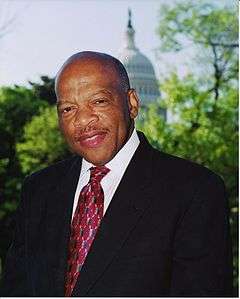 | |
| Jimmie Lunceford | 1925 | famous bandleader in the swing era | |
| Aubrey Lyles | 1903 | Vaudville performer | |
| Mandisa | 2001 | Grammy and Dove Award-nominated Christian contemporary singer/songwriter, ninth-place finalist in the fifth season (2006) of American Idol | |
| Patti J. Malone | 1880 | Fisk Jubilee Singer | |
| Louis E. Martin | 1933 | Godfather of Black Politics | |
| Fatima Massaquoi | 1936 | Pioneering Liberian educator | [35] |
| Wade H. McCree | 1941 | Second African-American United States Solicitor General; Justice, U.S. Court of Appeals for the Sixth Circuit |  |
| Samuel A. McElwee | 1883 | State Senator during the Reconstruction Era and the first African American elected three times to the Tennessee General Assembly | |
| Robert McFerrin | first African American male to sing at the Metropolitan Opera and father of Bobby McFerrin | ||
| Leslie Meek | 1987 | Administrative Law Judge, wife of Congressman Kendrick Meek | |
| Theo Mitchell | 1960 | Senator, South Carolina General Assembly | |
| Undine Smith Moore | first Fisk graduate to receive a scholarship to Juilliard, Pulitzer Prize Nominee | ||
| Diane Nash | founding member of SNCC | ||
| Rachel B. Noel | Politician; first African-American to serve on the Denver Public Schools Board of Education | ||
| Lonnie H. Norris, D.M.D., M.P.H. | 1964 | first African American Dean in the history of Tufts University School of Dental Medicine. | [36] |
| Donna M. Norris M.D. | 1964 | psychiatrist and the first black and first woman speaker at the assembly of the American Psychiatric Association. | [37] |
| Hon. Hazel O'Leary | former U.S. Secretary of Energy |  | |
| Lucius T. Outlaw, Jr. | Philosophy professor at Vanderbilt University[38] | ||
| J.O. Patterson, Jr. | 1958 | First African American to occupy the office of Mayor of Memphis. Tennessee State Representative, State Senator, Memphis Councilman, Jurisdictional Bishop in the Church of God in Christ | |
| Helen Phillips | 1928 | first African-American to perform with the Metropolitan Opera Chorus | |
| Annette Lewis Phinazee | 1939 | first black woman to earn a doctorate in library sciences from Columbia University | |
| Alma Powell | wife of Gen. Colin Powell | ||
| Cecelia Cabaniss Saunders | 1903 | director of Harlem YWCA, 1914-1947 | |
| Lorenzo Dow Turner | 1910 | Linguist and Chair, African Studies at Roosevelt University | |
| A. Maceo Walker | 1930 | Businessman, Universal Life Insurance, Tri-State Bank | |
| Ron Walters | 1963 | Scholar of African-American politics, Chair, Afro-American Studies Brandeis University | |
| Margaret Murray Washington | 1890 | Lady Principal of Tuskegee Institute and third wife of Booker T. Washington | |
| Ida B. Wells | American civil rights activist and women's suffrage advocate |  | |
| Charles H. Wesley | 1911 | President of Wilberforce University from 1942 to 1947, and President of Central State College from 1947–1965; third African-American to receive a Ph.D. from Harvard | |
| Kym Whitley | actress, comedian | ||
| Frederica Wilson | 1963 | U.S. Representative for Florida's 17th congressional district |  |
| Tom Wilson (producer) | 1953 | Music producer, best known for his work with Bob Dylan and Frank Zappa | |
| Frank Yerby | 1938 | first African-American to publish a best-selling novel |
Notable faculty
| Name | Department | Notability | Reference |
|---|---|---|---|
| Camille Akeju | Art | Art historian & museum administrator | [39] |
| Arna Bontemps | Librarian | Head Librarian; Harlem Renaissance Poet | |
| Robert Hayden | United States Poet Laureate 1976–1978 | ||
| Charles Spurgeon Johnson | President | First African American President of Fisk University | |
| Fayette Avery McKenzie | President | Fourth President of Fisk University | |
| Thomas Elsa Jones | President | Fifth President of Fisk University | |
| Percy Lavon Julian | Chemistry | first African-American Chemist and second African-American from any field to become a member of the National Academy of Sciences | |
| Lee Lorch | Mathematics | mathematician and civil rights activist. Fired in 1955 for refusing to testify before the House Un-American Activities Committee. | |
| Hon. Hazel O'Leary | President | former U.S. Secretary of Energy | |
| John Oliver Killens | Writer in Residence | Two-time Pulitzer Prize Nominee | |
| Nikki Giovanni | English | author, poet, activist | |
| James Weldon Johnson | Literature | author, poet and civil rights activist, author of Lift Ev'ry Voice and Sing, known as the "Negro National Anthem" | |
| John W. Work III | Music | Choir Director, Ethnomusicologist and scholar of Afro-American folk music | |
| Aaron Douglas | Art | painter, illustrator, muralist | |
| Robert E. Park | Sociology | sociologist of the Chicago School |
References
- ↑ "Welcome". Fisk Memorial Chapel. Retrieved 28 June 2010.
- ↑ Tamburin, Adam (2015-09-21). "Fisk University president resigns". The Tennessean.
- ↑ Mitchell, Reavis L., Jr., Clinton Bowen Fisk, The Tennessee Encyclopedia of History and Culture, 2002, accessed 8 July 2012
- ↑ "History of Fisk". Fisk University. Retrieved 8 July 2012.
- 1 2 Mitchell, Reavis L., Jr., Fisk University, The Tennessee Encyclopedia of History and Culture, 2002, accessed 3 Mar 2009
- ↑ Richardson, Joe M. "A negro success story: James Dallas Burrus." The Journal of Negro History 50, no. 4 (1965): 274-282.
- ↑ Biographical note: Adam Knight Spence, Spence Family Collection, Fisk University Library, accessed 3 Mar 2009. Link via webarchive accessed 15 August 2013.
- 1 2 "Fisk University", The Tennessee Encyclopedia of History and Culture, 2002, accessed 3 Mar 2009. "When the American Missionary Association declined to assume the financial responsibility of the Jubilee Singers, Professor George L. White, Treasurer of the University, took the responsibility upon himself and started North in 1871 with his troupe. On April 12, 1873, the Jubilee Singers sailed for England where they sang before a fashionable audience in the presence of the Queen, who expressed her gratification at the performance."
- ↑ Christopher L. Nicholson, “To Advance a Race: A Historical Analysis of the Personal Belief, Industrial Philanthropy and Black Liberal Arts Higher Education in Fayette McKenzie’s Presidency at Fisk University, 1915–1925”, Loyola University, Chicago, May 2011, p.299-301, 315–318.
- ↑ "Fisk University Struggles Through Financial Crisis", NPR, September 16, 2010
- ↑ "President", Fisk University webpage. Retrieved 2013-07-29
- ↑ Phillips, Betsy, "H. James Williams Named New President of Fisk University", Nashville Scene, December 7, 2012. Retrieved 2013-07-29.
- ↑ Tamburin, Adam (September 21, 2015). "Fisk University president resigns". The Tennessean. Retrieved 2015-10-05.
- ↑ "Contemporary Reviews". www.chesnuttarchive.org. Retrieved 2016-04-18.
- 1 2 "Alfred Stieglitz Collection returns to Fisk University". The Tennessean. Retrieved 2016-04-18.
- ↑ "Search for cash turns into battle over art for Fisk University". CNN.com. CNN. 2007-12-27.
- ↑ Pogrebin, Robin (3 August 2012). "Legal Battle Over Fisk University Art Collection Ends". The New York Times. Retrieved 5 August 2012.
- ↑ Rosenbaum, Lee (CultureGrrl), "News Flash: Court Order to Send Fisk’s Stieglitz Collection to Crystal Bridges in Fall 2013", Arts Journal blog, August 2, 2012.
- ↑ Allyn, Bobby (4 August 2012). "Fisk finalizes deal to sell half-stake of Alfred Stieglitz collection in end to long fight, half-stake sold to Arkansas museum". The Tennessean. Retrieved 5 August 2012.
- ↑ RESOLUTION NO. RS2008-188: A resolution to recognize and declare Fisk University Day in Nashville, Tennessee on March 19, 2008, Nashville Metropolitan Council, accessed 3 Mar 2009
- 1 2 3 Patel, Vimal (2016-05-19). "Building a Better 'Bridge' to the Ph.D.". The Chronicle of Higher Education. ISSN 0009-5982. Retrieved 2016-05-22.
- ↑ Stassun, Keivan G.; et al. (December 2010). "The Fisk-Vanderbilt Master's-to-Ph.D. Bridge Program: Recognizing, enlisting, and cultivating unrealized or unrecognized potential in underrepresented minority students". American Association of Physics Teachers. doi:10.1119/1.3546069.
- ↑ "About the Bridge Program". Fisk-Vanderbilt Bridge Program. 2014-09-12. Retrieved 2016-05-22.
- ↑ Cassuto, Leonard (2013-07-01). "Ph.D. Attrition: How Much Is Too Much?". The Chronicle of Higher Education. ISSN 0009-5982. Retrieved 2016-05-22.
- ↑ "Historically Black Colleges and Universities Ranking | Rankings | US News Best Colleges". colleges.usnews.rankingsandreviews.com. Retrieved 2016-05-22.
- ↑ "Fisk University | Fisk | Best College | US News". colleges.usnews.rankingsandreviews.com. Retrieved 2016-05-22.
- ↑ "Fisk University". Princeton Review.
- ↑ Parade's College "A" List: Combined Bachelor's/Graduate Degree: Fisk University, Parade, accessed 8 July 2012
- ↑ http://www.forbes.com/colleges/fisk-university/
- ↑ NAIA Member Schools, NAIA webpage. Retrieved 2013-08-28.
- ↑ GCAC Members, GCAC webpage. Retrieved 2013-08-28.
- ↑ Carter, Tomeiko Ashford, editor (2010). Virginia Broughton: The Life and Writings of a Missionary, The University of Tennessee Press, page xxxix. ISBN 978-1572336964
- ↑ "Biographies". Digital.nypl.org. Retrieved 2012-12-09.
- ↑ "Project MUSE - Virginia Broughton". Muse.jhu.edu. Retrieved 2012-12-09.
- ↑ Massaquoi, Fatima (2013). Introduction to The Autobiography of an African Princess. Palgrave Macmillan. ISBN 978-1-137-10250-8.
- ↑ "Dr. Lonnie H. Norris Receives ADEA Distinguished Service Award". Nasdaq. March 17, 2012.
- ↑ "ProMutual Group Adds Donna M. Norris, M.D., to its Board".
- ↑ Vanderbilt University bio. Retrieved 2013-07-22.
- ↑ Bass, Holly (March–April 2006). "Camille Akeju: New Director Seeks to Rejuvenate Anacostia Museum". Crisis: 37–39. Retrieved 22 April 2012.
External links
| Wikimedia Commons has media related to Fisk University. |
